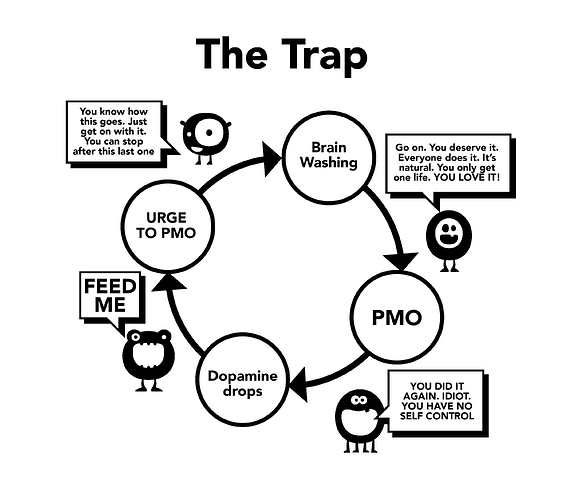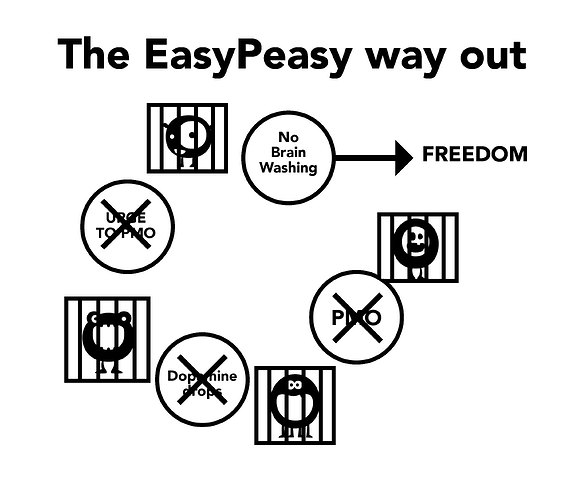4.6 The Smokers Analogy
Reading Time: 1.5 minutes
A good analogy is that of the cigarette smoker. If they went ten hours of the day without a cigarette they’d be tearing their hair out, but many smokers will buy a new car and refrain from smoking in it. Many will visit theatres, supermarkets, churches and being unable to smoke causes them no problems. Even on trains and airplanes there have been no riots. Smokers are almost pleased for someone or something to stop them smoking.
Users will automatically refrain from using internet 𝗉𝗈𝗋𝗇 in their parents’ home during family gatherings and other events with little discomfort. In fact, most users have extended periods during which they abstain without effort. The neurological little monster is easy to cope with even when you’re still addicted. There are millions of users who remain casual users all their lives and they’re just as addicted as the heavy user. There are even heavy users who’ve kicked the addiction but have an occasional peek, greasing the water slide to be ridden down at the next dip in mood.
As said previously the actual 𝗉𝗈𝗋𝗇 addiction isn’t the main problem, it’s simply acting as a catalyst to keeping our minds confused over the real problem – brainwashing. Don’t think the bad effects of internet 𝗉𝗈𝗋𝗇 are exaggerated, however; if anything, they’re sadly understated. Occasionally, rumours circulate that the neural pathways created are there for life, with the right mix of chance and stimulus sending you down the life-ruining water slide again, but these are untrue. Our brains and bodies are miraculous machines, recovering within a matter of weeks.
It’s never too late to stop! A quick browse of online communities will show you people of all ages rebooting their (and their partner’s) lives. As with anything, some do take it to the next level, practicing semen retention, Karezza and through differentiation of the sensory and propagative sides of sex make their partners happier than ever before.
It may be of consolation to lifelong and heavy users that it’s just as easy for them to stop as casual users, and in a peculiar way it’s easier. The further it drags you down, the greater the relief. When I stopped I went straight to zero and didn’t have one bad pang. In fact, the process was actually enjoyable even during the withdrawal period.
But first, we must remove the brainwashing.

